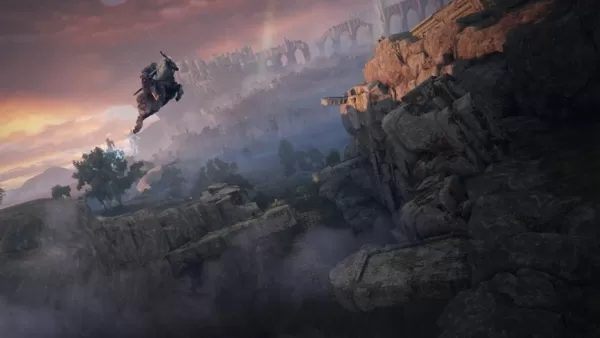Open-world games were once synonymous with overwhelming checklists. Maps were cluttered with markers, mini-maps dictated every move, and objectives often felt more like chores than thrilling adventures.
Then came Elden Ring from FromSoftware, which tossed aside the conventional playbook, abandoned the hand-holding approach, and offered players a rare commodity: true freedom.
In collaboration with our partners at Eneba, we're delving into what Elden Ring has done for the genre and why it's truly impressive.
A World That Doesn't Beg for Your Attention
Traditional open-world games often demand your constant attention. Pop-ups and notifications frequently remind you of where to go, what to do, and why it matters. In stark contrast, Elden Ring adopts a subtler approach—it whispers. It presents a vast, enigmatic world and trusts players to explore it on their own terms.
The game eschews intrusive UI elements, allowing curiosity to guide your journey. If something on the horizon piques your interest, venture forth and you might uncover a hidden dungeon, a powerful weapon, or a formidable boss eager to challenge you.
And here's the best part: there's no level scaling. The world remains unaltered by your level; instead, you must adapt to its challenges. If an area proves too difficult, you can return later—or not at all. No one's stopping you from attempting to battle a dragon at level five with a broken sword, though the consequences might be fiery and fatal.
It's never too late to delve into the Lands Between, especially when you can find an Elden Ring Steam key at Eneba for less than you might expect.
Exploration Feels Like Discovery, Not a Checklist
In many open-world games, exploration often feels more about efficiency than adventure. Players rush from one map marker to another, ticking off objectives as if completing errands. Elden Ring, however, completely upends this dynamic.
There’s no quest log dictating your every move. NPCs speak in enigmatic riddles, distant landmarks appear without explanation, and the game refrains from spoon-feeding you information.
 This might sound daunting, but it's precisely what makes exploration so rewarding. Every cave, ruin, and fortress feels like your personal discovery. No one directed you there; you ventured out because your curiosity compelled you.
This might sound daunting, but it's precisely what makes exploration so rewarding. Every cave, ruin, and fortress feels like your personal discovery. No one directed you there; you ventured out because your curiosity compelled you.
Unlike other games where loot can feel like a random drop, Elden Ring ensures that every reward is significant. Stumble upon a secluded cave, and you might emerge with a game-changing weapon or a spell capable of summoning a meteor storm.
The Joy of Getting Lost (and Surviving)
Most games view getting lost as a setback. In Elden Ring, it's part of the thrill. You might take a wrong turn and end up in a treacherous poison swamp (because, of course, there's a poison swamp). You could wander into what seems like a peaceful village, only to be ambushed by monstrous beings. Yet, these moments breathe life into the world.
The game doesn't guide you by the hand, but it does scatter clues throughout the environment. A statue might hint at an underground treasure, a cryptic NPC could allude to a hidden boss. If you're attentive, the world subtly directs you without confining you to a predetermined path.
Open-World Games Will Never Be the Same?
Following Elden Ring's release, the landscape of open-world games may never be the same. FromSoftware demonstrated that players don't require incessant guidance to relish an open world—they crave mystery, challenge, and the exhilaration of discovery. We can only hope that other developers will take inspiration from this.
If you're eager to immerse yourself in a world that not only invites but demands exploration, digital marketplaces like Eneba offer fantastic deals on gaming essentials. Whether it's Elden Ring or other must-play titles, your next adventure is always just a few clicks away.







![Chubby Story [v1.4.2] (Localizations)](https://images.737c.com/uploads/85/1719638042667f981a5e9f8.jpg)

